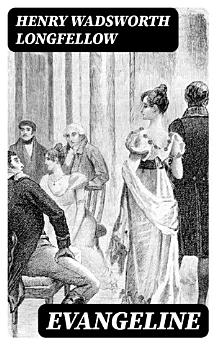關於本電子書
In "Evangeline," Henry Wadsworth Longfellow crafts a narrative poem that intertwines love, loss, and the impacts of history through the lens of Acadian culture. Written in blank verse, the text follows the tragic journey of Evangeline, separated from her beloved Gabriel during the forced displacement of Acadians from Nova Scotia. Longfellow's lyrical style, characterized by rhythmic cadences and vivid imagery, transports readers to a time of cultural upheaval while simultaneously celebrating the enduring power of hope and love amid adversity. The poem, contextualized within the broader Romantic Movement, draws heavily on American themes of nostalgia and nature, resonating with an audience grappling with their own contemporary challenges. Henry Wadsworth Longfellow, a prominent figure in 19th-century American literature, was profoundly influenced by his own multicultural heritage and his deep appreciation for folk tales and oral traditions. His extensive travels through Europe and America imbued him with a sense of the sweeping historical narratives that shape human experience. The publication of "Evangeline" in 1847 marked a significant moment in American poetry, as Longfellow sought to elevate the nation's cultural identity by telling stories that honor marginalized voices. For readers seeking a poignant exploration of love's resilience against the backdrop of historical trauma, "Evangeline" serves as a rich literary experience. Longfellow's adept weaving of narrative and emotion invites reflection on the human spirit's capacity for endurance. This timeless work is not only a love story but also a meditation on loss, making it a must-read for anyone interested in American literary heritage and the intricacies of human connections.
關於作者
Henry Wadsworth Longfellow (1807–1882) stands as a towering figure in American literature, celebrated for his lyrical prowess and his ability to bridge the gap between the old world and the new through his poetry. Born in Portland, Maine—then part of Massachusetts—Longfellow cultivated an interest in languages and literature at an early age, later attending Bowdoin College alongside Nathaniel Hawthorne. After a fruitful trip to Europe to study languages, he embarked on an academic career at Bowdoin and subsequently at Harvard University. Longfellow's literary style is marked by a tender simplicity and a fondness for themes of nostalgia, nature, and the human condition. His narrative poem 'Evangeline: A Tale of Acadie' (1847) is a testament to his narrative eloquence and emotional depth. This epic poem, which follows the plight of Acadian lovers separated during the Great Expulsion, solidified Longfellow's reputation, endearing him to readers across America and Europe for its poignant exploration of love and loss, all delivered in an evocative hexameter. Longfellow's versatility is also evident in his forays into translation, most notably with his revered translation of Dante Alighieri's 'Divine Comedy.' His body of work, which continues to inspire and captivate readers, is integral to the canon of American romantic literature and has contributed immensely to the cultural and artistic heritage of the United States.
為這本電子書評分
歡迎提供意見。
閱讀資訊
智慧型手機與平板電腦
筆記型電腦和電腦
你可以使用電腦的網路瀏覽器聆聽你在 Google Play 購買的有聲書。
電子書閱讀器與其他裝置
如要在 Kobo 電子閱讀器這類電子書裝置上閱覽書籍,必須將檔案下載並傳輸到該裝置上。請按照說明中心的詳細操作說明,將檔案傳輸到支援的電子閱讀器上。







